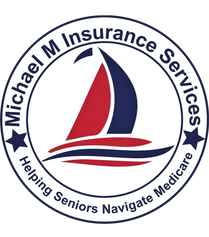For individuals nearing age 65, making decisions about Medicare can feel overwhelming. One of the most important choices you’ll face is deciding
between a Medicare Advantage (Part C) plan and a Medicare Supplement (Medigap) plan. Both options can offer valuable benefits, but the right fit
depends on your unique health needs, lifestyle, and financial situation.
This blog will walk you through five thoughtful considerations to help you make a calm, informed decision. Whether you’re researching for yourself or helping a loved one, we hope this guide brings clarity and confidence to your Medicare journey.
Ask yourself: Do I value provider flexibility and nationwide access, or am I comfortable with a local network of doctors and hospitals?
SEO Keywords: Medicare provider networks, choosing doctors with Medicare, Medicare nationwide coverage, travel with Medicare.
Ask yourself: Would I prefer lower monthly premiums with potential out-of-pocket costs, or am I more comfortable paying more monthly for greater cost predictability?
Ask yourself: Are extras like dental and vision important to me? Would I prefer all my coverage in one plan or manage them separately?
Ask yourself: Do I have ongoing health conditions? How often do I visit doctors, specialists, or require lab work or imaging?
Ask yourself: Do I want the flexibility to change plans each year, or am I looking for a more permanent, stable solution?
If you’re turning 65 soon, we encourage you to start your research early. Talk to a licensed Medicare advisor, use Medicare.gov, or connect with a State Health Insurance Assistance Program (SHIP) to explore your choices in a calm, supportive environment.
When you understand the differences between Medicare Advantage and Medigap, you can make a confident decision that gives you peace of mind about your healthcare.
This blog will walk you through five thoughtful considerations to help you make a calm, informed decision. Whether you’re researching for yourself or helping a loved one, we hope this guide brings clarity and confidence to your Medicare journey.
1. Provider Access and Flexibility
Medicare Advantage Plans
These plans typically use a network of providers, similar to an HMO or PPO. While they may offer lower costs for in-network services, they often require referrals for specialists and may limit out-of-network care unless it’s an emergency.Medicare Supplement Plans
Also known as Medigap, these plans work with Original Medicare and allow you to see any provider that accepts Medicare nationwide. This can be especially helpful for those who travel frequently or live in multiple states during the year.Ask yourself: Do I value provider flexibility and nationwide access, or am I comfortable with a local network of doctors and hospitals?
SEO Keywords: Medicare provider networks, choosing doctors with Medicare, Medicare nationwide coverage, travel with Medicare.
2. Monthly Premiums and Out-of-Pocket Costs
Medicare Advantage Plans
Often, these plans have lower or $0 monthly premiums, but you may be responsible for copayments, coinsurance, and deductibles when you receive care. Many plans have an annual out-of-pocket maximum, which helps limit your total spending.Medicare Supplement Plans
These typically come with a higher monthly premium, but they help cover many of Medicare’s out-of-pocket costs, including copays and deductibles. With Medigap, your healthcare costs are often more predictable.Ask yourself: Would I prefer lower monthly premiums with potential out-of-pocket costs, or am I more comfortable paying more monthly for greater cost predictability?
3. Additional Benefits Beyond Original Medicare
Medicare Advantage Plans
These plans often include extra benefits such as dental, vision, hearing, fitness memberships, and prescription drug coverage (Part D). They can be a good choice if you prefer bundled benefits in one plan.Medicare Supplement Plans
Medigap plans do not include additional benefits like dental or vision. You would need to purchase standalone coverage or pay out-of-pocket for those services. Medigap also does not include Part D prescription drug coverage, so you’ll need to enroll in a separate drug plan.Ask yourself: Are extras like dental and vision important to me? Would I prefer all my coverage in one plan or manage them separately?
4. Health Status and Frequency of Care
Medicare Advantage Plans
If you are generally healthy and don’t see doctors often, a Medicare Advantage plan might offer lower costs and convenient access to routine care. However, if your health needs change, you could face higher out-of-pocket expenses.Medicare Supplement Plans
If you have chronic conditions or require frequent medical attention, a Medigap plan may help you avoid unexpected bills by covering more of your out-of-pocket costs.Ask yourself: Do I have ongoing health conditions? How often do I visit doctors, specialists, or require lab work or imaging?
5. Long-Term Coverage and Enrollment Flexibility
Medicare Advantage Plans
You can enroll or change Medicare Advantage plans each year during the Annual Enrollment Period (October 15 – December 7) or during the Medicare Advantage Open Enrollment Period (January 1 – March 31).Medicare Advantage Open Enrollment Period (January 1 – March 31).
Medicare Supplement Plans
The best time to enroll in a Medigap plan is during your six-month Medigap Open Enrollment Period, which begins when you are 65 and enrolled in Medicare Part B. After this window, you may have to go through medical underwriting and could be denied coverage based on your health.Ask yourself: Do I want the flexibility to change plans each year, or am I looking for a more permanent, stable solution?
Final Thoughts: Choosing the Medicare Path That Fits You
Both Medicare Advantage and Medicare Supplement plans have their strengths. There is no one-size-fits-all answer—and that’s okay. The most important thing is choosing the path that fits your lifestyle, health status, and financial goals.If you’re turning 65 soon, we encourage you to start your research early. Talk to a licensed Medicare advisor, use Medicare.gov, or connect with a State Health Insurance Assistance Program (SHIP) to explore your choices in a calm, supportive environment.
When you understand the differences between Medicare Advantage and Medigap, you can make a confident decision that gives you peace of mind about your healthcare.
Frequently Asked Questions
Can I Change Between Medicare Advantage and Medicare Supplement at any Time?
Yes, but only during certain enrollment periods during the year. Care must be taken because some states will require Medical Underwriting for the Supplement. Some states such as NY are Guarantee Issue with no underwriting.
Do Medicare Supplement Plans offer Dental/Vision like Medicare Advantage?
No, because your Medicare Supplement coverage is based on your Medicare Card which does not cover those services.
Will a Medicare Advantage Plan cover all of my Doctors like the Supplement?
Possible not. Medicare Advantage plans have Doctor and Hospital
networks so great care should be taken when choosing them.
Mike Miligi- Owner
For over 10 years, Mike has been assisting Seniors and other Medicare-eligible individuals in understanding the ins and outs of Medicare and Medicare Health Insurance options, including Medicare Advantage Plans(Part C), Medicare Supplement Plans(Medigap), Prescription Drug Plans(PartD), and Dental and Vision programs.
Mike is Licensed in seven States and Certified with 11 Insurance Carriers. He has helped thousands of individuals decide on the best course of action for their particular Health Insurance needs. Because Mike is an Independent Medicare Health Insurance Broker, he works for the client, not the Insurance Carriers, and is able to provide his clients with accurate and unbiased Health Insurance options.
Mike recertifies with CMS(The Centers for Medicare and Medicaid Services) annually, regularly completes Continuing Education Courses required by individual State Insurance Departments, and keeps abreast of industry trends and standards to offer his clients the most up-to-date information.

